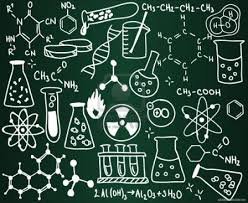Chemistry and Biotechnology: Pioneering the Frontier of Innovation
Welcome to our website dedicated to the exciting fusion of chemistry and biotechnology. Chemistry plays a pivotal role in unlocking the potential of living systems, enabling breakthroughs in healthcare, agriculture, and environmental sustainability. Join us as we explore the dynamic world of chemistry and biotechnology, uncovering the revolutionary applications and advancements that are shaping the future of science and technology.

- Drug Discovery and Development: Chemistry is at the forefront of drug discovery and development. Chemists design and synthesize novel compounds, optimize their properties, and evaluate their efficacy and safety. They work hand in hand with biologists and pharmacologists to develop life-saving medications, targeting diseases such as cancer, cardiovascular disorders, and infectious diseases.
- Biocatalysis and Enzyme Engineering: Chemistry enables the use of enzymes and biocatalysts for sustainable manufacturing processes. Chemists engineer enzymes to perform specific chemical transformations, allowing the production of valuable compounds in a more efficient and environmentally friendly manner. These biocatalytic processes offer a greener alternative to traditional chemical synthesis.
- Biomaterials and Tissue Engineering: Chemistry contributes to the development of biomaterials and tissue engineering technologies. Chemists design and synthesize materials that interact seamlessly with biological systems, enabling the creation of artificial tissues and organs. These advancements hold great potential for regenerative medicine and personalized healthcare.
- Agricultural Biotechnology: Chemistry plays a vital role in agricultural biotechnology, improving crop productivity and sustainability. Chemists develop innovative fertilizers, pesticides, and herbicides to enhance plant growth and protect against pests and diseases. They also work on genetically modifying crops to increase yield, improve nutritional content, and enhance resistance to environmental stressors.
- Biomedical Imaging and Diagnostics: Chemistry enables the development of advanced imaging agents and diagnostic tools. Chemists design and synthesize contrast agents for various imaging modalities, such as magnetic resonance imaging (MRI) and positron emission tomography (PET). They also develop molecular probes and biosensors for detecting diseases at the molecular level.
- Biofuels and Bioenergy: Chemistry plays a key role in the production of biofuels and the advancement of bioenergy technologies. Chemists develop processes to convert biomass, such as plant matter and agricultural waste, into renewable fuels and chemicals. They also work on improving the efficiency of bioenergy production, including microbial fuel cells and biohydrogen technologies.
- Environmental Biotechnology: Chemistry contributes to environmental biotechnology, addressing pressing environmental challenges. Chemists develop bioremediation strategies to detoxify pollutants and restore contaminated environments. They also explore bio-based materials and technologies for sustainable waste management and water treatment.
At our website, we explore the dynamic fusion of chemistry and biotechnology, uncovering the principles, applications, and advancements that are revolutionizing science and technology. Join us as we delve into drug discovery and development, biocatalysis and enzyme engineering, biomaterials and tissue engineering, agricultural biotechnology, biomedical imaging and diagnostics, biofuels and bioenergy, and environmental biotechnology. Welcome to a place where chemistry and biotechnology converge to pave the way for a healthier, more sustainable future.

